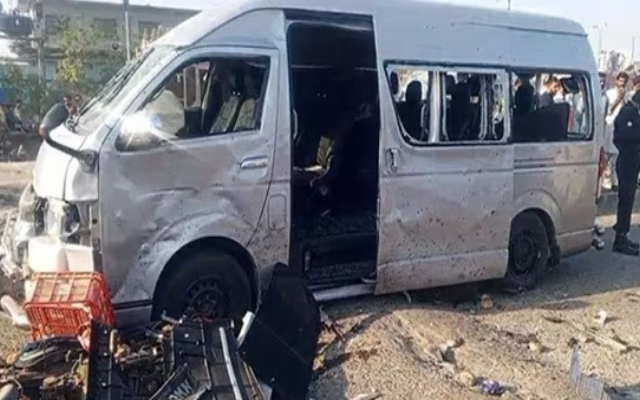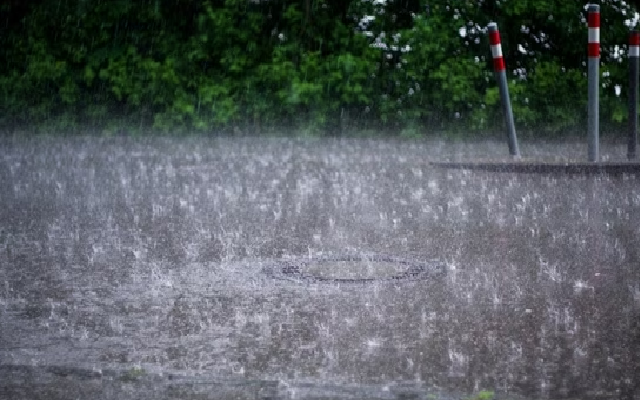
Part 1 of the unfolding migrant worker crisis – A collective conscience awakens.
On January 30th, 2020, the World Health Organisation declared COVID-19 as a Global Emergency. By March 4th there were 28 confirmed Coronavirus cases across India (that today there are 52,952 cases and 1783 deaths is another matter). On March 11th, the WHO declared the coronavirus as a pandemic. But the central government was not yet in panic mode. Life went on as usual until suddenly on March 19, 2020, the prime minister addressed nation calling for a Janata Curfew on March 22, 2020.
The next evening with four hours’ notice, the entire nation was in lockdown with the effect of the midnight of March 23rd – effectively March 24th. There was financial relief package announced on March 26, 2020, but not a word about Migrant workers. On March 27, 2020, many migrants started walking home, hungry, and unhappy. They were stopped at the state/district borders and states ended up forcing them into shelters that were often unsanitary, with horrific facilities and insufficient food according to various reports doing the rounds of the media both print and social media. The electronic media is often blind to these realities.
The Centre refused to provide cheap foodgrains to the states, despite sitting on stockpiles, which would have helped utilize India’s food ration system effectively. The sates, on the other hand, did not liberalize the ration card system with temporary cards for the states they were stranded in. The food security Act had become meaningless. They were provided for partially by the state and partially by NGOs even as politicians and political parties competed for visual space on the essential items kits/food packs handed out to them.
Some states managed to shelter them in decent enough conditions. Kerala is the best example. The rest simply did not care. After all, they were economic resources, not their own, and were to be treated as such was their attitude.
They were even sprayed with disinfectant when actually allowed to leave Delhi, which apart from Mumbai and South India has the largest interstate migrants. Even as the government got into group /committee mode – it set up 11 empowered groups to coordinate emergency response – Migrant labor fell by the wayside – There was no committee or group set up to deal with their woes. The Government has now set up a one-man commission to study the issues involved and recommend an action plan, reports say. A welcome move. Dr. C V Ananda Bose a retired civil servant is considered an expert on human relations. It is hoped he will bring compassion and empathy to bear in his report.
Meanwhile, the PM told the nation in his Mann ki Baat that the Lockdown is the only answer in the war between life and death”. But while he explained the necessity of the Lockdown, and asked people to bear with the hardship, there were no kind words for the migrant labor or those in the unorganized workforce.
As the Lockdown took its toll, the money dried up in the hands of businessmen and their employees, but the Ministry of Home Affairs directed employers to pay employees. How and from what income was not specified. There was no mention of the 450 million in the unorganized workforce especially their hardships. Recently in an interview with NDTV’s Srinivasan Jain, businessmen in Noida were asking the question – Even if we want to how do we pay wages for April and May when there is no income?
Given that things were getting out of hand, activists and NGOs petitioned the Supreme Court on March 31, 2020, seeking wage compensation for workers during the lockdown. Even as lights were switched off on April 3rd and Diyas were lit for the Corona Warriors, the Corona sufferers suffered silently at first then through spontaneous protests across the country beginning in Surat.
On April 15, 2020, came the announcement of the lockdown till 3rd May. Migrants ignored in the announcement rushed to the Bandra railway station wanting to return home prompting the MHA to allow movement of migrants within states. The gathering was politicized but it was symbolic of the dilemma that governments were in, both at the state and the center. They had not factored in human feelings in their calculation of post covid19 game plans. They believed that the lure of earnings and sustenance during the lockdown would be enough to retain labor.
Then came the blockbuster – The Supreme Court disposed of the petition for wages for migrant workers because they were satisfied with the government’s efforts of disbursements under various existing government schemes. But this prompted the MHA to allow inter-state movement of migrant workers by buses and special trains on April 29, 2020 – There was no mention of implementation mechanisms and costs.
Subsequently, visuals of desperate workers walking several migrants walking home stirred a hornet’s nest. The opposition latched on to it prompting the government on May 1, 2020, to allow the movement of migrant workers by organizing special trains for them. When the travel guidelines came soon after the decision, they were shocking, to say the least, and reflected a thought process that was full of economics and devoid of empathy, perhaps because the economy was itself in shambles.
The guidelines made the following points:
“Railways shall print tickets to the specified destination, as per number of passengers indicated by the originating state and hand them over to the local state government authority. The local state government authority shall handover the tickets to the passengers cleared by them and collect the ticket fare and hand over the total amount to the Railways.”
Meanwhile, the Centre came up with a plan to fly back over 15000 people from 12 countries by Naval ships and the National Airline. They would, of course, be paying for the repatriation. But the effort seemed more organized and in contrast to the way the Migrant workers are being treated. Indeed they too were migrants contributing to their foster nation’s economy pre COVID19 and earning a livelihood – what if the countries in which they were located refused to allow them to return so that they could kick start their own economies? Would that have been justified or would it have caused an uproar? These are questions that must be asked.
The move angered people more. The opposition parties labeled the union government “insensitive and inhuman” for making the workers’ pay despite having known that a majority of them had absolutely no money left after somehow sustaining through the lockdown.
Faced with mounting criticism about their insensitivity to the migrant labor, the center came up with the 85:15 explanation – The Centre would bear 85% of the expenses, while the states would bear 15%.
The train tickets would be, by this logic subsidized by 85% with the migrant worker having to pay just 15% to reach home. But as the Wire reported in its article Fact Check: No, the Centre Isn’t Paying for Migrant Workers’ Train Journeys Home this was anything but true. In fact they had to pay Rs: 50 more per ticket.
The Centre has so far run 171 trains to ferry migrants. NDTV reports that 56 Shramik Special trains were run yesterday. Still many are making their way home on foot or by goods Lorries and sometimes cycles.
The Karnataka Saga:
Meanwhile, in Karnataka, the migrants were being taken care of in various camps, the conditions of which were far from hygenic or comfortable. But those in Karnataka were much better of than in most of the states reports say. Nevertheless, the migrants still wanted to go home for more than one reason – a lack of work, fear, and worry. The fear was about falling prey to the virus far away from their loved ones and the worry was also on account of the same happening to their loved ones. Their desire to continue to earn post Covid19 had become a very distant priority for them.
But the state which lifted the lockdown in most of its districts barring those in the red zone this week, saw them as resources to kick start economic activity. After a meeting between builders and the State Government, the state decided to cancel the Shramik special trains that would allow them to go home citing it was “unnecessary”.
2/4
Barring the red zones, business, construction work and industrial activities have to be resumed. In this context, it was explained that unnecessary travel of the migrant workers has to be controlled.— CM of Karnataka (@CMofKarnataka) May 5, 2020
4/4
The labourers should not heed to the rumours and avoid unnecessary travel.5. Issues relating to the weavers were also discussed today.
6. Relief measures would be undertaken after discussing with the officers of Finance Department.#KarnatakaFightsCorona@BSYBJP
— CM of Karnataka (@CMofKarnataka) May 5, 2020
Chief Minister BS Yediyurappa also left no ambiguity about why the trains were canceled, explaining that “unnecessary travel of the migrant workers has to be controlled”.
The former CM criticizing the move of the government in a tweet asked this question under the hashtag #MigrantLivesMatter, “The decision to go back or to stay back should be with the labourers & not with the government. Labourers are free to choose health or work. Who will take responsibility if something goes wrong? Are we still practicing bonded labour?
The decision to go back or to stay back should be with the labourers & not with the government. Labourers are free to choose health or work. Who will take responsibility if something goes wrong?
Are we still practicing bonded labour?
For me #MigrantLivesMatter!!
3/4
— Siddaramaiah (@siddaramaiah) May 6, 2020
All this was a bit too much for a democratic India to bear. There was widespread outrage and then then came a change of heart.
The state government has now said that it will restart the service tomorrow with three trains. The government has written to nine state governments, seeking their consent to send the migrants back. The list includes Jharkhand, Odisha, Bihar, Madhya Pradesh, Uttar Pradesh, Manipur, Tripura, West Bengal, and Rajasthan. The trains are expected to run till May 15.
I spoke with Chief Secretary, K’taka and urged him strongly to reconsider decision to cancel trains.
They may be poor. But they are humans.They are not bonded labourers,Like Indians abroad want to come home, these ppl also want to & have a right to go to their home & their family pic.twitter.com/GEym32WG7B— Krishna Byre Gowda (@krishnabgowda) May 6, 2020
Let’s say these migrant labor will be well-paid post Covid19; they might still want to go home for the reasons mentioned above – Love of family above all else and fear of being alone if afflicted by Corona Virus – does this thought not occur to anyone in our constitutional scheme of things?
Anyone who wishes to go home should be allowed to go home or come home as the case may be with suitable and appropriate checks – Bringing them back to work should be incentivized with greater social security – A case in point is is the use of the Labour welfare cess under BOCW Act. The lack of appropriate and adequate use of The Building And Other Construction Workers Welfare Cess Act, 1996 is a case in point – We will deal with its use and abuse separately.
And here lies the rub and the nub. Our money or your life. The choice is ours to make say the 1% of India’s populace who run the show mostly for their own benefit.


















